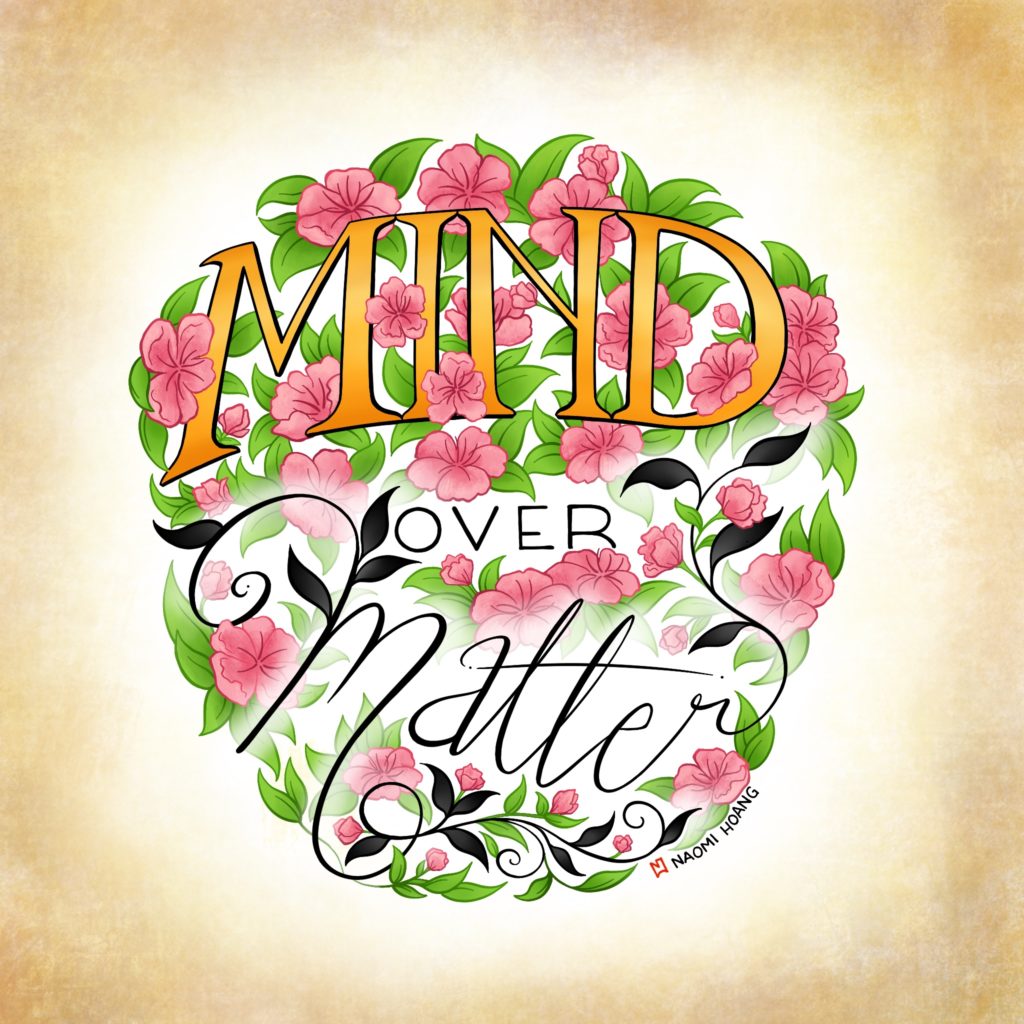
May marks “Mental Health Awareness” month, where people post their stories and support to lessen the stigma of issues such as Depression, Anxiety, Bi-Polar and many others.
Mental health issues affects 1 in 4 people in the UK and can be debilitating to one’s daily life if left untreated. Unlike physical injuries or disabilities, internal struggles cannot be easily seen and, if held by a high-functioning individual, is practically invisible to others.
Having suffered with severe Depression for a decade and overcame it with professional help, I wanted to dedicate a post of resources for people in similar situations. When you’re in the thick of it, it’s hard to fathom a life without the grip of mental illness and easier to settle for coping or getting by. Words can’t describe how enlightening it feels to be rid of such a burden and I want you to know that it is possible to get to the other side.
I won’t mince my words. It’s not easy and you will have to face your fears, but take baby steps and you’ll get there eventually.
Please bear in mind that I’m not a certified therapist and that this post is about me sharing resources that I’m aware of. Some worked for me, but they might not work for you. If in doubt, contact your GP for professional advice.
.

Resources
In no particular order, here are things I found during my journey.
.
Daily Gratitudes
This is a task anyone can do anywhere and at any time. List three things each day that you’re grateful for – no matter how seemingly small. This helps bring attention to positive things that happen each day. Having a quiet moment to think about and appreciate the smaller things in life slowly make you realise they’re actually big things. 💗
Personally, I write these in my diary/organiser and use shorthand to determine the following:
🔺 = I’m grateful for…
👑 = Win (something I was particularly happy or proud of)
❤️ = Something nice I did for someone else
Examples that frequent my diary are, ‘sunny day ☀️’ and ‘grateful of lovely clients ☺️’.
Why not give this a go for a week and see how you feel?
.
Cognitive Behavioural Therapy
CBT is a talking therapy that focuses on your current situation rather than delving into the past (though some therapists may explore this with you to gain a deeper understanding). It involves changing the way we think (cognitive) by analysing our experiences logically for what they are. From there, we can make decisions (behaviour) to respond to circumstances in a healthy way, rather than falling back to old habits that may be destructive.
It’ll teach you how to interrupt the flow of negativity and direct it towards more positive outcomes.
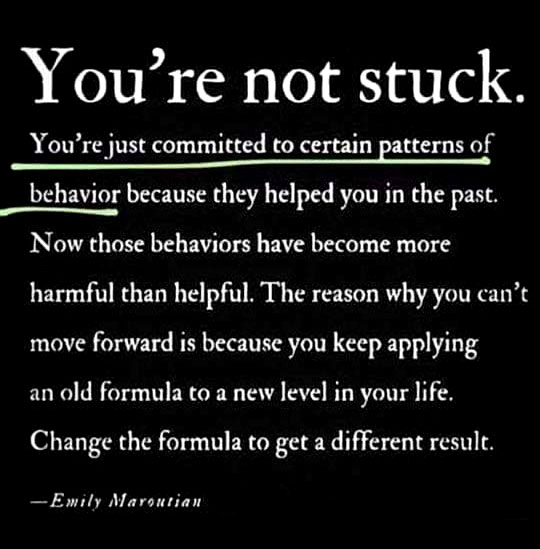
The tasks can be challenging, but they’re completely worth it. You get what you put in. If you have time with a therapist, tell them everything because they can only help you based on what they know. The temptation is to play it cool and keep the mask up, but you’ll make more progress if you allow yourself to be vulnerable and accept help…it’s also much easier than going solo!
Contact your GP for a referral. NHS waiting times are likely to be a few months, so get in sooner rather than later. Private options are also available. Unfortunately, not all areas get the same funding or level of training, so the quality and availability of therapists may vary depending on where you live.
.
Superbetter
Website | Book | App: Google / iOS

If speaking to others feels too much right now, there’s a free app that has turned therapy into a game. Fight your demons through small, daily actions and gain Power Ups when you do. Get badges and trophies for your wins and call on Allies to help, so they can cheer you on. ✊
.
Learn more via Jane McGonigal’s TED Talk above. Skip to 3mins to hear positive links between gaming and life goals, or 7:40mins to hear about Superbetter.
.
Self-help Books

Borrow from the library for free, visit a book shop or download an audio book. Whichever floats your boat. ⛵
Here is one my therapist recommended for me, though you can find other specific to what you’re going through. It goes into a lot of detail and has exercises to follow along the way. It’s essentially what I did in sessions, so if 1:1 therapy is not available to you in your area, then this is a good alternative.
UPDATE: The author of the book linked above has created a 3-step course version, where you can write into them like workbooks.
If you’re considering the self-help route, it may be worth asking someone you trust to check up on you every now and then for accountability. CBT exercises are worth going through, though they can take some determination at times.
.
Meditation
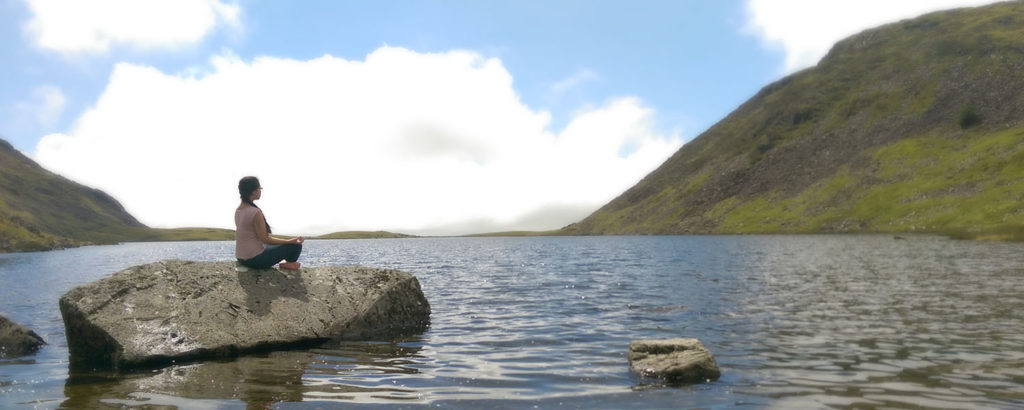
Meditation is the act of being present. Not in the past or future – just the here and now. The most common form of meditation is seated, eyes closed and legs crossed (lotus pose, if you can manage it!). Alternatively, you can do a walking meditation, where you walk slowly and mindfully, observing all you encounter without interaction or comment. Whatever your method, the goal is to clear the mind of thoughts and simply be and exist in the space you’re in.
When deep in the midst of mental illness, this can be a truly challenging task. Be kind to yourself and allow baby steps. When I first started, I set the bar as low as 10 seconds, then went up to 20, 1 minute, 5, 10, 15….with daily practice, 15-20mins seemed like nothing at all and made a huge difference to my temperament and ability to stop the flow of negative thoughts before they spiralled out of control.
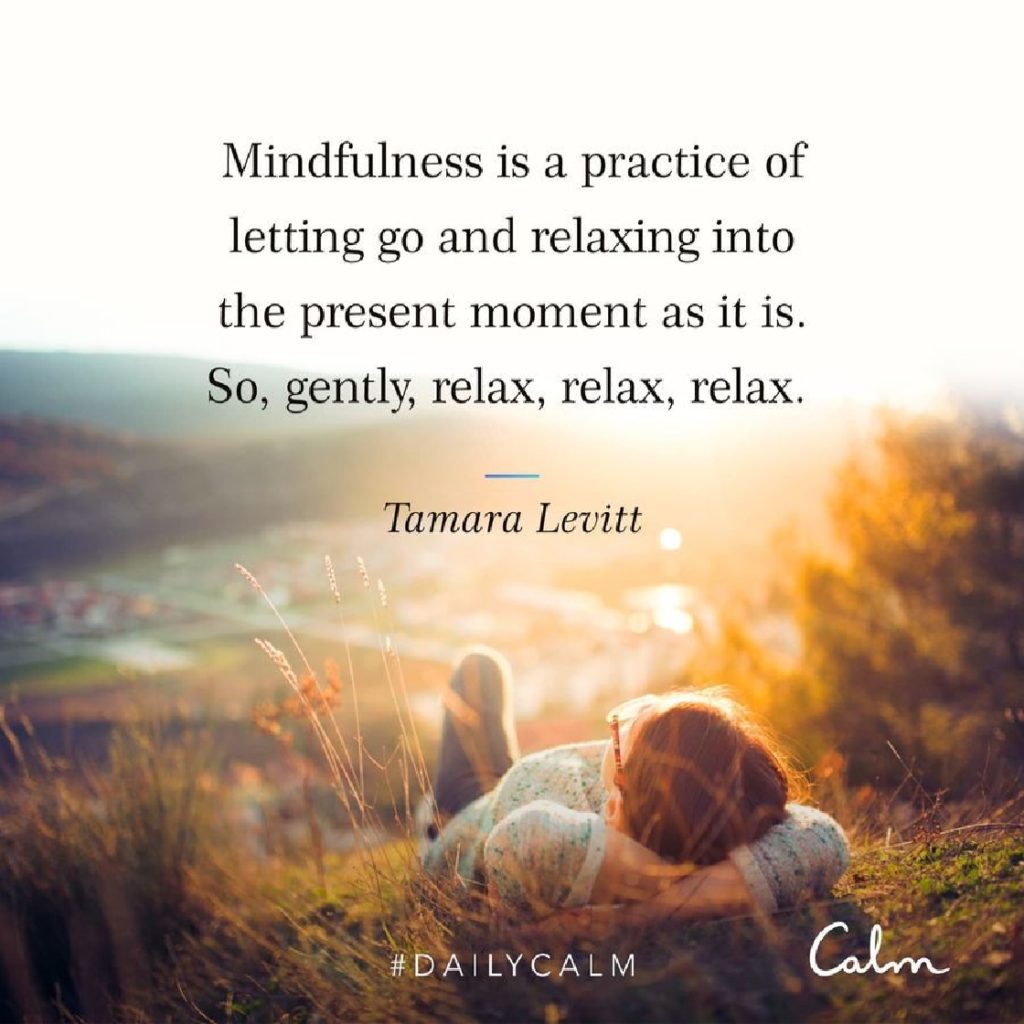
Apps such as Calm or Headspace have a free week of guided meditation each. Personally, I prefer Calm, as I find Tamara’s voice more soothing and their annual cost is more affordable (£29.99 per year, at time of writing). It has multiple sound options and can be used for self-directed meditation (free). If you’re the competitive sort, it’ll show you how many days you’ve meditated and keep track of your running streak…the longest chain I’ve managed so far is 147 days!
Read more in my blog post, Keeping a Calm Mind.
.
Exercise

Getting the body moving releases endorphins and serotonin, making you feel good inside and out. For a better chance of sticking at it, choose an activity you enjoy, so it doesn’t feel arduous!
Besides being physically fitter, positive side-effects can include improved self-esteem and a sense of accomplishment when you’ve achieved goals or milestones. The good thing about exercise is that there can be clear, tangible goals, such as being able to do full push-ups or a trick you’ve been practising for weeks.
If you take part of a class, then being around other people will take you away from isolation and potentially make new friends. Taking it outdoors will give you a chance to enjoy the beauty of nature and breathe cleaner air than being cooped up indoors.
Keeping occupied physically can also clear the mind, as you’ll be focused on the task at hand. Whether it’s counting reps, keeping track of the route or trying not to fall (yes, I’m looking at you, Yoga 😂), these are ways to stay in the present and let the mind take a well-deserved break.
.
Hobbies

What makes you feel happy? If you’re struggling to think of anything, what did you enjoy doing when you were a kid?
As working adults, it can be tough to fit in time for leisure, but if we neglect this side of our lives, we’ll be more prone to burn-out and low moods.
Having interests outside of work not only makes us more well-rounded people, they can also help us feel refreshed, challenged or enable us to widen our social circles with like-minded people. If you’re concerned about ‘wasting your time’, think of it this way: energy gained from outside of work can feed into your career, whether through inspiration or new skills acquired that compliment it.
When I was in the severest part of my Depression in 2013-14, I didn’t do anything fun in my spare time, despite longing for it. Low self-esteem talked me into believing I wasn’t worthy of nice things, so my time was spent working and mentally spiralling into a black hole until I passed out from exhaustion…don’t do that!! It’s such an unhealthy and miserable place to be in. 😰 Nowadays, I make things, draw comics and am trying to get back into playing the piano. 🎹
.
Nature

Walks, jogs, cycling…skating, anything! Heading to the park or taking a trip to go hiking can be a great change of pace and environment.
Allow yourself the time to take in the scenery, hear the birds and breathe in the fresh air. If it’s sunny, even better! Low levels of Vitamin D can make us lethargic, and just 15minutes (depending on your skin tone) of natural, direct sunlight each day can help us feel more perky.
If you can’t find anyone to join you, there are group walking tours available – just have a look at places like Meetup.com or Facebook (please exercise caution when travelling alone and always let someone you trust know where you are).
.
Being with Others
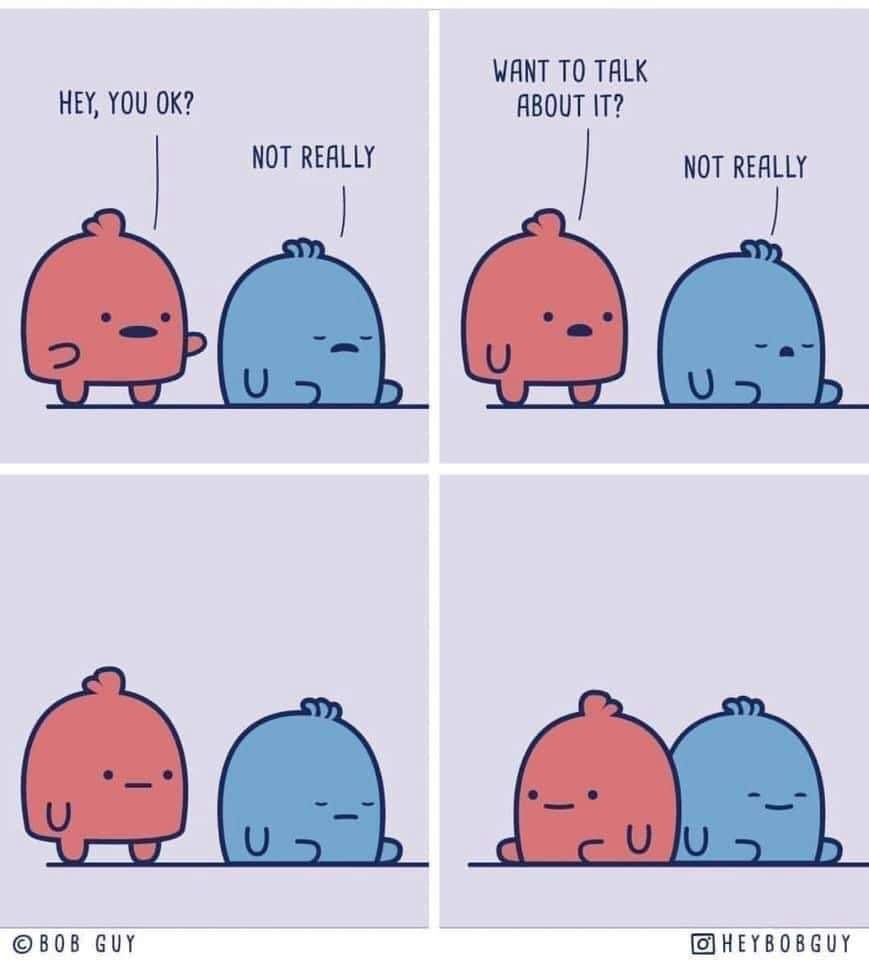
This can seem like the hardest thing to do when struggling with mental illness. From not wanting to ‘burden’ others with their problems and being a killjoy, feeling scared to leave their home, to not feeling worthy of their company or nice things in general, there can be lots of reasons why people with mental illness may isolate themselves from others. Kindness and patience is needed from friends, along with a willingness to try from those going through a rough time.
Confiding in someone you trust who would be willing to sit with you during down spells is a beautiful thing. Instead of pushing them away, cherish those around you who have your back.
.
Medication

Use and need of medication will vary depending on your case and your GP will advise the best course of action. Please research these first to make an informed decision.
Personally, I avoided medication because I wanted to muster the strength to overcome Depression without it. The idea of having to make an appointment and physically get myself to the GP again if I had a relapse filled me with dread, so I instead made a beastly effort to go without. This approach suits my stubborn personality type, but may not be appropriate for others, and I certainly don’t judge those who choose to take them.
That’s not to say they’re wrong – everyone is different and their situations unique. I simply can’t comment on their effectiveness due to lack of experience.
Just bear in mind that medication is a crutch – it’ll help you get by, but it won’t resolve the underlying issue(s) that cause their use of them. I highly recommend CBT for lasting change.
.
Rest
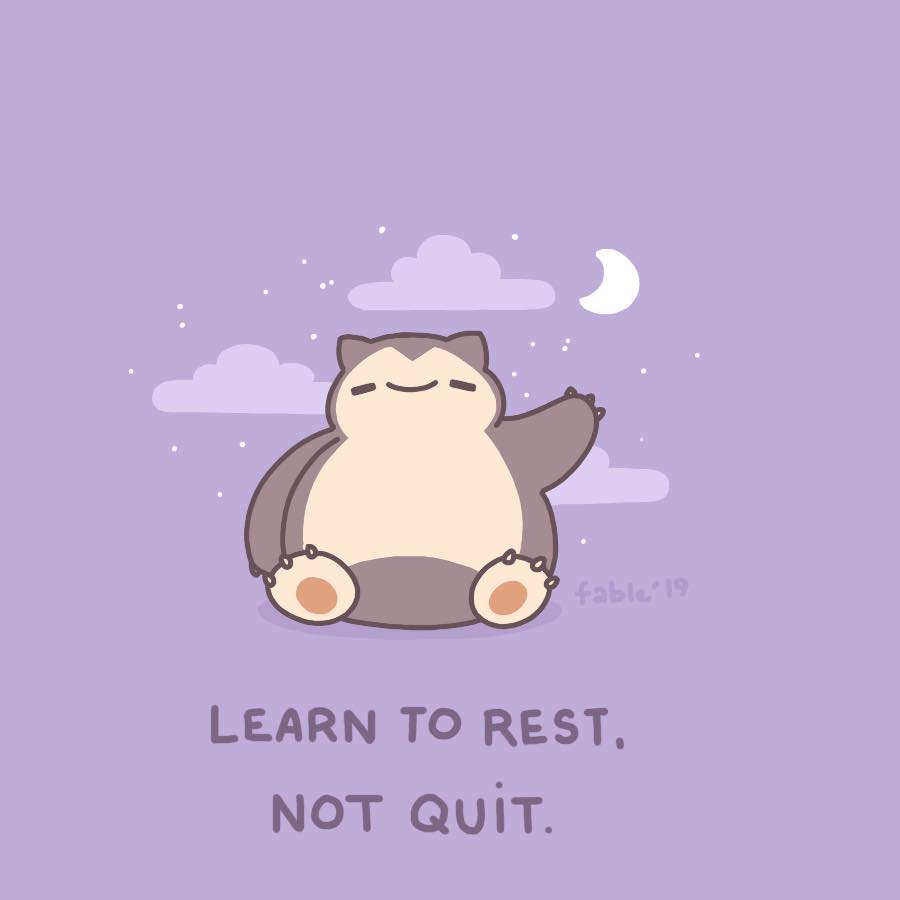
Last but not least…rest. 😌 Take one step at a time and allow yourself to take a break when times get overwhelming. Take a step back, breathe, recoup and start the next day with a fresh start. You’ve got this.
.

Thanks for reading and I hope this helps! If you know someone who is struggling with mental illness, please consider sharing this with them. 😊
Naomi xxx
